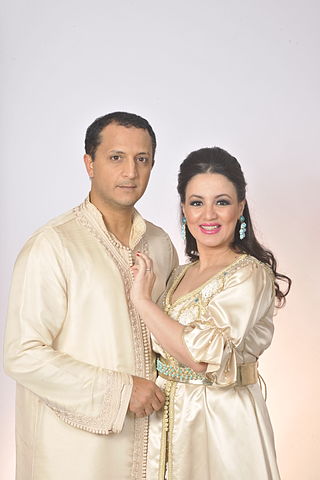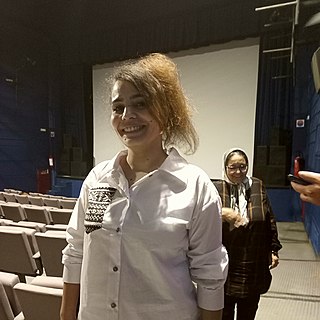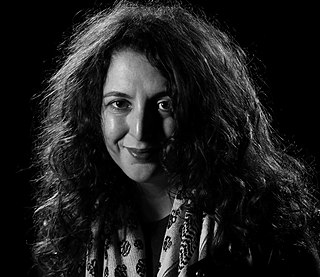Laarbi Batma was a Moroccan musician, poet, singer, writer, actor, and the front man of the group Nass El Ghiwane.

The Marrakech International Film Festival (FIFM) is an international film festival founded by the Marrakech International Film Festival Foundation in 2001 and held annually in Marrakech, Morocco. The 20th edition is being held from November 24 until December 2, 2023.

The history of the cinema of Morocco dates back to "The Moroccan Goatherd" by Louis Lumière in 1897. During the French protectorate, films were produced and directed by French filmmakers, and in 1952, Orson Welles directed his Othello in the historic city of Essaouira. Since independence in 1956, Moroccan film directors developed the national film industry. Emergence in the 1970s met with growing international success.

The General Directorate for Studies and Documentation is the foreign intelligence agency of Morocco, under authority of the Administration for National Defense. It is officially tasked with maintaining national security and the safety of national institutions.
Narjiss Nejjar is a Moroccan filmmaker and screenwriter. Her film Les Yeux Secs was screened at Cannes in 2003.
Ouidad Elma is a French-Moroccan actress. She was born on October 2, 1992, on the Rif Mountains, Morocco. She grew up in Paris in the neighborhood of Menilmontant.
Guy-Roger Duvert is a French film composer, film director and author.

Sana Akroud is a Moroccan actress, filmmaker, screenwriter and film producer.
Oumaïma Belahbib, also known as Oumayma Belahbib or Oumayma Bel Ahbib, is a Moroccan amateur boxer, who won a gold medal at the 2017 African Amateur Boxing Championships, and a bronze medal at the 2019 African Games. She has competed in the welterweight event at the 2020 Summer Olympics.

Naima Lamcharki is a Moroccan actress.
Saâd Chraïbi is a Moroccan director and screenwriter.

Swel Noury is a Spanish-Moroccan filmmaker.
Abdellah Mesbahi was a Moroccan filmmaker.
L'Amante du Rif is a film co-produced by Morocco, Belgium and France, directed by Moroccan filmmaker Narjiss Nejjar and released in 2011. The film, a loose adaption of the novel of the same name written by Nejjar's mother, Noufissa Sbaï, was screened at multiple film festivals.
The International Women's Film Festival of Salé or FIFFS, is a film festival held in Salé, Morocco.

Asmae El Moudir is a Moroccan film director, screenwriter and producer.

Mohamed Chrif Tribak is a Moroccan filmmaker and screenwriter.
Terminus des anges is a 2010 Moroccan anthology film directed by Mohamed Mouftakir, Hicham Lasri and Narjiss Nejjar, released in 2010. The film is a combination of three short films, each directed by a different director. It premiered at the National Film Festival of Tangier. The film tackles the subject of AIDS.

Wake Up Morocco is a 2006 Moroccan film directed by Narjiss Nejjar. It was screened at the National Film Festival in Tangier and the Marrakesh International Film Festival.

Sonia Terrab is a Moroccan writer, filmmaker, and activist. Her work revolves around the status of women in Moroccan society, social hypocrisy regarding the body and sexuality, and Moroccan youth.










